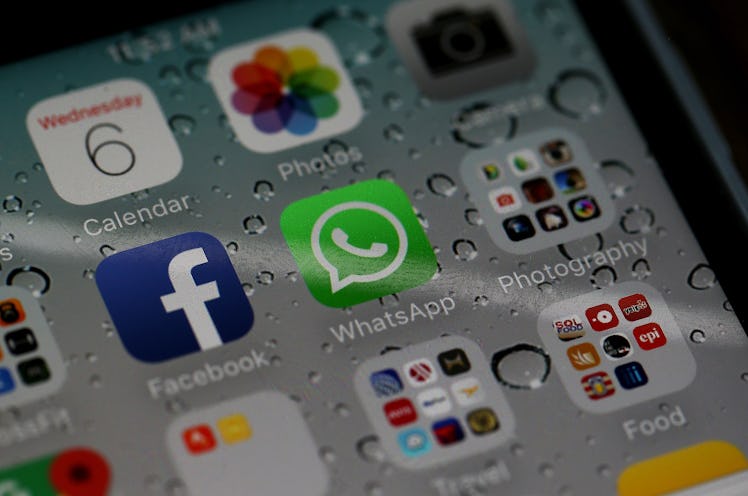
Here’s Which Facebook Privacy Settings You Should Change After That Major Data Breach
In the wake of a shocking March 17 exposé by The New York Times, which reported that more than 50 million Facebook users' private data had been allegedly mishandled by the data firm Cambridge Analytica in 2014 to influence the American electorate, many are wondering about what kind of information the social network stores. The scandal involves the U.K.-based data-mining firm, Facebook, third-party app developers, wealthy corporate campaign donors to President Donald Trump's campaign, and even Steve Bannon. But what does it mean for you, the everyday internet user? You should get to know how to update your data privacy settings on Facebook.
Cambridge Analytica is a data company that offers services to businesses and political parties who want to “change audience behavior," per their website. It collects data from a wide range of sources, including apps and social media platforms like Facebook. Why is it in the news? Last weekend, the Times reported (in conjunction with London's Observer newspaper and whistleblower Christopher Wylie) that some of the personal information harvested from Facebook in 2014 had allegedly been done without authorization.
Wylie, a Canadian former Cambridge Analytica employee, felt morally conflicted with what the company was allegedly doing with users' data, and decided to speak out. In an interview with The Guardian, he explained how the data was reportedly gathered:
They had apps on Facebook that were given special permission to harvest data not just from the person who used the app, or joins the app, but also it would then go into their entire friend network and pull out all of the friends' data as well. Things like status updates, likes, in some cases private messages. We would only need to touch a couple of hundred thousand people to expand into their entire social network which would then scale us to, you know, most of America.
"Cambridge Analytica strongly denies the claims recently made by The New York Times, the Guardian and Channel 4 News," Cambridge Analytica said in a statement on Monday. The company added that "Facebook data was not used by Cambridge Analytica as part of the services it provided to the Donald Trump presidential campaign."
Facebook CEO Mark Zuckerberg said in a statement posted to Facebook on Wednesday, "This was a breach of trust between Kogan, Cambridge Analytica and Facebook. But it was also a breach of trust between Facebook and the people who share their data with us and expect us to protect it. We need to fix that."
"In the next month, we will show everyone a tool at the top of your News Feed with the apps you've used and an easy way to revoke those apps' permissions to your data," Zuckerberg also said in his Facebook post. "We already have a tool to do this in your privacy settings, and now we will put this tool at the top of your News Feed to make sure everyone sees it."
In case you don't want to hold your breath for Zuckerberg to deliver on these promises, there is a really simple way to guard your privacy on Facebook.
01Click "Settings"
Go to the Settings tab. From there, you'll see the settings pane with an array of options on the left-hand side. (Toggle the settings button on your respective iOS or Android device if you're using the mobile app.)
02Next, click "Apps"
This is where you can control settings for apps that you use in concert with Facebook. At the top of the window you should see a list of apps that you've allowed access to your Facebook data.
03Revoke access to apps
You should carefully vet the apps you allow access to your account. Facebook has a step-by-step guide to remove unwanted apps if you have trouble, and Zuckerberg vowed Wednesday to make these privacy features more accessible.
04Be careful out there
While it's true that Facebook's advertising algorithms can lead you to interesting products and services tailored to your interests, it's best to think twice with what you share with seemingly-innocuous apps and games on Facebook.